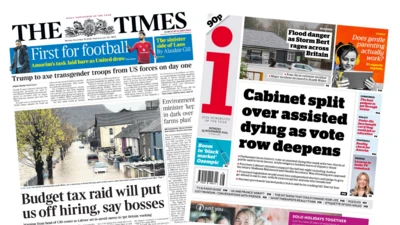We've updated our Privacy and Cookies Policy
We've made some important changes to our Privacy and Cookies Policy and we want you to know what this means for you and your data.
Many under-13s 'using Facebook'
Almost half of British children aged 9 to 12 are using social networking sites, despite minimum age limits, a report claims.
One in five has a Facebook page, even though rules say they must be 13, according to EUKidsOnline.
The report's authors suggest that removing such requirements would make it easier to monitor online behaviour.
However, children's charity Kidscape criticised the idea and warned it would lead to more cyber bullying.
, carried out by the London School of Economics for the European Commission, was based on a survey of 25,000 young people - aged between nine and 16 - from across Europe.
It asked if they maintained a social networking profile.
In the UK, 43% of 9 to 12-year-olds answered yes, along with 88% of 13 to 16-year-olds.
The Netherlands had the highest percentage of children on social networks at 70% - however many of these were users of Hyves, a site that does not have a minimum age.
Across Europe the average figure for 9 to 12-year-olds was 38%.
Report author Elisabeth Staksrud, from the University of Oslo, told ҙуПуҙ«ГҪ News that it was inevitable children would be drawn to sites such as Facebook: "If you're twelve you want to be where your peers are".
Parental guidance
The report also suggests that where parents do impose a strict policy on social networking, the majority of young people respect that guidance.
In France, 45% of parents said their children were forbidden from using social networking sites, the highest of any country in the survey.
Consequently, that country had the lowest proportion of children using social networking at 25%.
Peter Bradley, from child protection charity Kidscape, said it showed that parents must be firm with their children when it comes to internet use.
"Children are children, adults are adults. Sometimes you have to say no to your child," he said.
'Cop out'
However, Elisabeth Staksrud believes that by acknowledging children below the age of 13 are using services, social networking sites could develop measures to protect them.
"Since children often lie about their age to join 'forbidden' sites it would be more practical to identify younger users and to target them with easy-to-use protective measures," she said.
The report concedes that while this approach would help keep existing users safer, it could also lead to a substantial increase in underage children signing up.
Mr Bradley told the ҙуПуҙ«ГҪ he strongly believed that lowering the minimum age for Facebook would be wrong.
"Without doubt, if the age limit was removed from Facebook, the effect would be an increase in the number of young people accessing the site," he told the ҙуПуҙ«ГҪ.
"Automatically you'll have a greater increase of those at risk of bullying online.
"Abolishing the age limit is an absolute cop out really."
In a statement, Facebook said that it welcomed the attention that the study had focused on the issue.
"Recent reports have highlighted just how difficult it is to implement age restrictions on the Internet and that there is no single solution to ensuring younger children don't circumvent a system or lie about their age," it said.
The company said that features such as the Facebook safety centre helped to keep children safe while using the site. But, it added, families had a role to play too.
"Just as parents are always teaching and reminding kids how to cross the road safely, talking about internet safety should be just as important a lesson to learn."
Top Stories
More to explore
Most read
Content is not available








